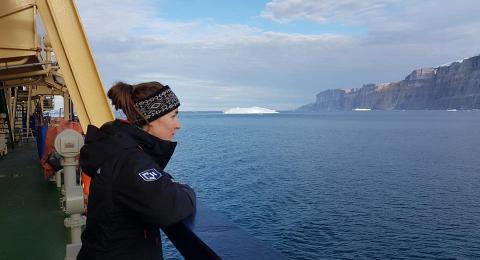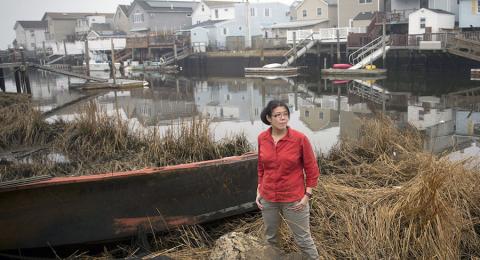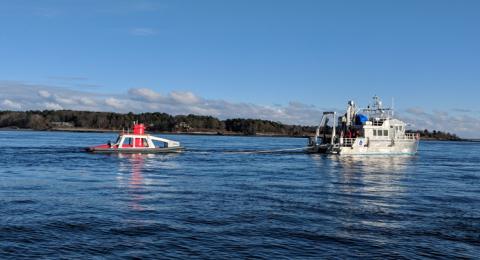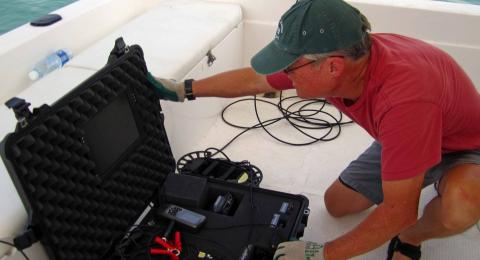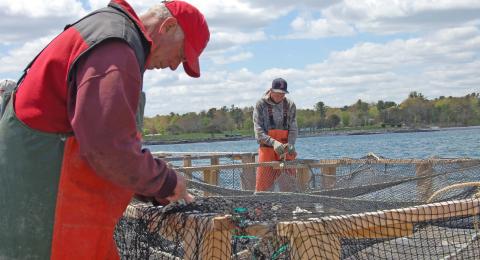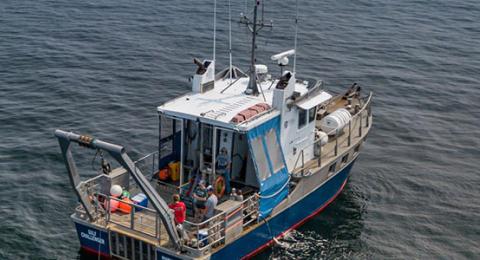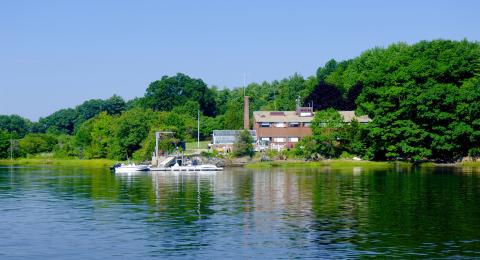The School of Marine Science and Ocean Engineering (SMSOE) is the University of New Hampshire’s first interdisciplinary school, designed to address today’s highly complex ocean and coastal challenges through integrated graduate education, research and engagement. As such, it serves as an interdisciplinary nexus for marine science and ocean engineering teaching and research across the University.

Looking for delicious and locally-raised seafood? Help support our Center for Sustainable Seafood Systems by purchasing smoked Steelhead trout from our offshore aquaculture training platform! Our responsibly-grown trout are raised offshore with blue mussels and sugar kelp in UNH's multi-trophic AquaFort and smoked by Boston Smoked Fish Co. with a mouthwatering mixture of brown sugar, tamari, salt, and other spices.
Orders can be placed below and picked up at Jere A. Chase Ocean Engineering Lab in Durham, NH or the Judd Gregg Marine Research Complex in New Castle, NH. Thank you for your support!
Recent Stories
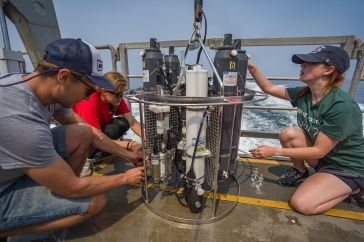
Tracking Acidification in the Gulf of Maine
Tracking Acidification in the Gulf of Maine
New report prioritizes needs and recommended actions for monitoring ocean and coastal acidification
Article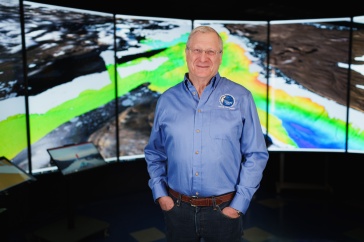
Urban Coast Institute Honors Mayer
Urban Coast Institute Honors Mayer
CCOM director receives National Champion of the Ocean Award
Article
UNH Contributes to Two Teams Chosen as Finalists for NSF Innovation Program
UNH Contributes to Two Teams Chosen as Finalists for NSF Innovation Program
Proposed projects aim to drive innovation and growth in New England’s seafood and forestry economies
ArticleUpcoming Events
-
Apr238:30 a.m. - 6 p.m.
UNH Land Acknowledgement
As we all journey on the trail of life, we wish to acknowledge the spiritual and physical connection the Pennacook, Abenaki, and Wabanaki Peoples have maintained to N’dakinna (homeland) and the aki (land), nebi (water), olakwika (flora), and awaasak (fauna) which the University of New Hampshire community is honored to steward today. We also acknowledge the hardships they continue to endure after the loss of unceded homelands and champion the university’s responsibility to foster relationships and opportunities that strengthen the well-being of the Indigenous People who carry forward the traditions of their ancestors.
